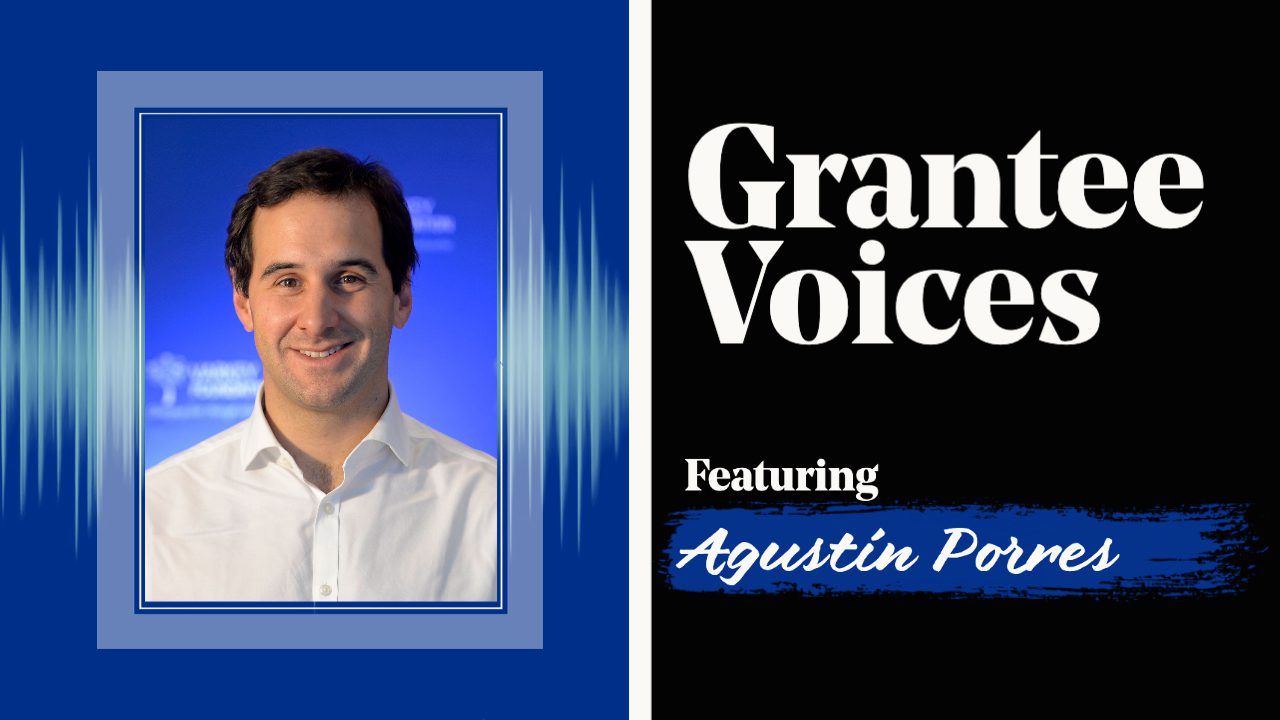The ‘Grantee Voices’ series features contributions from our remarkable grantees. This article was written by Agustín Porres, who is the Regional Director of Latin America at the Varkey Foundation.
Does it make sense to educate technically competent citizens without regard to virtues like justice or honesty? Society at large is faced with a very dangerous scenario when citizens are not educated with virtues.
To address this problem, we decided to promote a trailblazing project with the support from the John Templeton Foundation. For 18 months, 20 outstanding teachers from Latin America, as ambassadors of the Global Teacher Prize, are working to turn their classrooms into research labs. These efforts are underway in Argentina, Brazil, Chile, Colombia, Ecuador, Mexico, Peru and Uruguay.
We are fostering the skills of research-based teachers, promoting school projects, and proposing scalable scenarios at a regional and global level, supported by some of the world’s greatest experts on character development.
What is character? To put it plainly, we could say that it is our moral compass, our conscience, our way of relating to other people. It is the compilation of virtues that make us who we are.
Ethos means character, but not in the sense of temperament, rather in the sense of “form acquired by habit”. Therefore, character education is not obtained through quick recipes, but requires dedication, commitment and, above all, intentionality.
True education is not simply about distributing information; it has more to do with transformation than information. An educated person is not only competent in their discipline but understands other people and is able to live and flourish in community. The dimension of the common good is crucial to understand our objective.
This is something that we are trying to build with the leaders of each of the 20 projects, with the goal to create one thing: schools that are worthwhile. Here, the teachers who play a central role have the opportunity for transforming both people and their communities. This said, transformation will only be possible if we conceive of education in a broad way.
For this reason, teachers are the first people who need to enhance their training. This project is also one of the first projects in the Latin American region to develop such a deep and broad concept of its teaching task.
I could tell 20 stories surrounding the impact of this project, but I will mention only three.
Mariela Guadagnoli lives in a small town in Argentina. Mariela or “May”, as her students call her, works with adolescents with fragile family ties and little social support. Many of her high school students drop out of school, a common problem in the region. For this reason, she has realized the importance of teaching student resilience so they continue their education until the end of the school year. She has designed a mentorship program for sixth-grade boys, who accompany first-grade students, which ultimately makes both groups feel valued. Meanwhile, they will work with a goldsmith who teaches them how to attain skills in goldsmithing, and together they construct a “tree of life”, in which they will have to manually and symbolically mold their emotions into the different parts of the tree.
The second example is that of Gustavo Calderón, from Mexico, a specialist in learning technology and innovation, and a leader of the Social Maker STEAM Laboratory. Gustavo seeks to develop students’ confidence, developing great resilience in the face of failure and persevering through obstacles, knowing that the ultimate goal of their learning is not the final result (prototype, product, technological development), but rather, the process itself.
The third example is that of Cristóbal Rojas Basso, from Chile, who seeks to empower his blind students at Colegio Santa Lucía. He directs a musical orchestra that promotes perseverance, resilience, critical thinking and empathy, all building from a foundation of creativity. The project aims to empower these students and contribute to their personal development, facilitating their performance as people of integrity. It could be replicated in other parts of the world, deepening the connections between character development, music and the benefits they bring to students, particularly those with disabilities.
These concrete projects tell us that as educators, we can offer knowledge that is valuable. We can teach students how to discover new things for themselves, which is even more valuable. If learning to discover is part of the common good, we can flourish as a society, but this is only possible if we have great teachers. They can be the difference.
